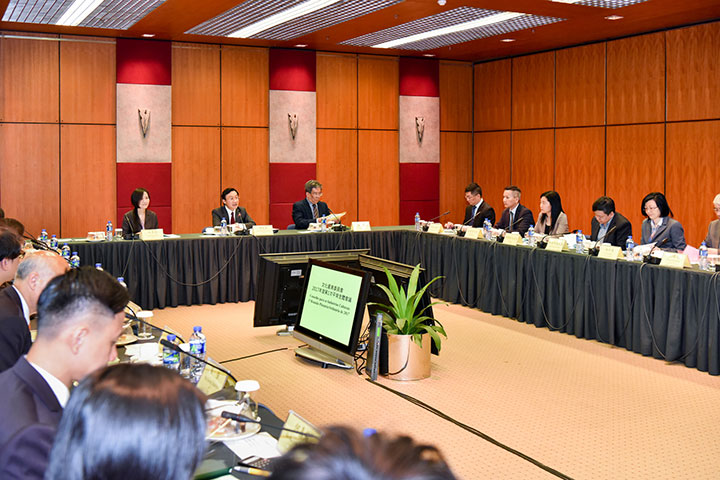Committee of Cultural Industries holds First Meeting

Secretary for Social Affairs and Culture Alexis Tam chairs first ordinary plenary meeting of 2017 of the Committee of Cultural Industries (Photo provide by Government Information Bureau)
The Macao SAR Committee of Cultural Industries held its first ordinary plenary meeting of this year on 28th April. The meeting was chaired by the Secretary for Social Affairs and Culture and Chairman of the Committee, Alexis Tam. During the meeting, he said that the Macao SAR Government is currently launching Macao's application process for Gastronomic City status of the UNESC Creative Cities Network. The gastronomic culture comprises innovation and creativity, and promotes the integration of cultural creativity and gastronomic culture. This will help to implement Macao as a Gastronomic City as well as showing the world its cultural diversity. Thus, he proposed the Committee form a project group to consider this matter and make suggestions.
At the meeting, the Cultural Institute (IC) presented the work carried out to advance the areas of culture and creative industries, including the regulations to be implemented in tandem with nine other departments (Macao Government Tourism Office, Sport Bureau, Customs Office, Fire Services Bureau, Public Security Police Force, Judiciary Police, Transport Bureau, Civil Aviation Authority, and Marine and Water Bureau), to launch a Request for Filming Co-ordination Service.
Thus, essentially the Cultural Affairs Bureau will be in charge of receiving and acting as consultant for requests for filming, forwarding such requests to the related departments. The service has been launched on an experimental basis from May to the end of this year. Once the service been reviewed and improved, it will be officially launched next year.
During the meeting, three project groups of the Committee presented the results of their work. These groups, based on the development of Macao's cultural industries and the problems they face, proposed various recommendations. They suggested the government establish regulations for antiques and art works auctions in order to allow the industry to grow. In addition, they suggested reviewing the current policy framework for the development of cultural industries in Macao, and hoped the government would provide a number of resources to develop cultural industries with the potential to industrialise and develop through regional co-operation.
Various Committee members offered opinions and suggestions, including investigating stories and events related to the famous people and historical figures of Macao, enriching the culture value of the region, using local cultural industries to 'rehabilitate' old city districts, and using local animation to decorate events and activities in order to increase exposure to the public. Alexis Tam thanked each member for their opinions and suggestions and agreed that the development of cultural industries would assist in the rehabilitation of the city's old neighborhoods, and that using local culture and stories was a way to encourage tourists to better know the local community and optimise tourism resources.
All members agreed on the orientation for future work; namely, including a study of the integration of the cultural industries of the community into the creative economy, and creating a project group that initiates debates on the establishment of Macao as a City of Gastronomy.